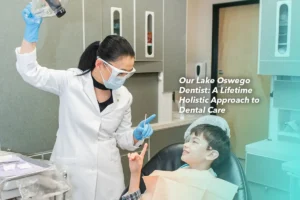It’s that time of year again! It’s time to talk about having a comprehensive dental plan for routine dental care. If you’re ready to remove the guesswork from your dental plans, then this is the article for you.
To ensure that we have a plan and stick to it, we’re going to have to make it easy to use. We’ll start with how important routine care is, and we’ll venture into the ways to prevent cavities, early detection, and of course, maintenance. So, here goes.
The Importance of Routine Dental Care
What you do regularly to care for your teeth and gums is very, very important.
Poor hygiene can lead to cavities, gum disease, and tooth decay. All are pretty bad for you. But, that’s just the beginning of potential issues. Dental problems and poor hygiene have also been linked to some pretty serious systemic conditions like heart disease and diabetes.
That’s why we put so much emphasis on preventative care. Preventing the problems before they even occur is ideal. It’s incredibly important, but it often gets overlooked. Well, there’s no better way of preventing problems than with routine maintenance. Brushing at least twice a day, flossing every day, and routine exams all play their part in optimum preventative care.
About The Components of a Routine Care Plan
A lot of care plans can vary, but here’s what one typically contains:
- Regular Dental Checkups: Scheduling an appointment with us every six months is the cornerstone of routine care. These appointments usually include a thorough examination of your teeth, gums, and mouth to identify any signs of decay, gum disease, or other abnormalities. We also check for oral cancer and assess the condition of existing dental work like fillings or crowns.
- Professional Cleanings: During these visits, our dental hygienist performs a cleaning to remove plaque and tartar buildup that brushing and flossing can’t address. This process, often called scaling, prevents gum inflammation and cavities. Polishing follows to smooth the teeth and remove surface stains, enhancing both health and appearance.
- X-Rays: Dental X-rays are typically taken annually or as needed to detect hidden issues like cavities between teeth, tooth root problems, or bone loss. They’re a critical diagnostic tool in routine care, ensuring nothing goes unnoticed.
- Daily Oral Hygiene: Routine care extends beyond our office. Brushing twice a day—once in the morning and once before bed—removes food particles and plaque. Flossing daily clears debris from between teeth, where brushes can’t reach. Adding an antiseptic mouthwash can further reduce bacteria and freshen breath.
- Dietary Considerations: A diet low in sugar supports routine dental care. Sugar fuels bacteria that produce acid, eroding enamel over time. Opting for water, vegetables, and clean protein can promote saliva production and strengthen teeth.
The Frequency of Routine Care
The American Dental Association recommends routine care and cleanings twice a year for most people, and it does work well for most.
But there are exceptions. For those with gum disease, diabetes, or a history of frequent cavities, more frequent visits could be recommended. It’s important to get a checkup as frequently as needed to maintain optimum health.
Being seen by a professional at least twice per year can help you to assess and eliminate any issues before they become serious as well as remove any buildup that may be present.
Costs and Insurance Considerations
We believe that everyone in the Lake Oswego area deserves to get the best treatment available. In addition to Care Credit and Springstone, we offer an in-house Dental Wellness Plan through Illumisure to help cover dental costs. Membership in our in-house Dental Wellness Plan or through Illumisure helps cover costs (including emergencies) and can fit affordably into your monthly budget, with big annual savings.
In addition, we accept all insurance plans (although they do limit coverage for some services).
For those on Medicare, routine dental care isn’t covered, though some Medicare Advantage plans include it. Reviewing your insurance or discount options ensures routine care fits your budget.
Taking This Information and Making It Work For You
None of this information would be of much use if you could not easily put it to work in your own personal life. So, consider this a comprehensive plan to do just that. To really put this to use, I suggest the following tips:
- Decide that you are going to make routine dental care a habit for you and your family. We tend to stick to things easier when we decide that we are going to.
- Schedule dental appointments well in advance and set reminders. You can use a calendar or app for this, but it’s important to do because our clinic can be booked for months in advance, so make sure you schedule the appointment, and make sure it’s on a day and at a time that works for you.
- At home, build a routine around brushing and flossing. You can call this a habit. You brush your teeth and drink water right when you wake up, and you brush your teeth and floss before going to sleep – every day. You can pair flossing with something you do often before going to sleep. I’m not saying you like to scroll on your phone, but if you do, pair it with flossing so it becomes a routine.
- Promote education. If you have kids, show the proper techniques, make it fun. Make sure they understand why they need to do it. You don’t have to tell them that their teeth will fall out if they don’t, but just tell them why they need to brush and floss every day. Explain what flossing does, and how they can avoid a lot of problems including bad breath, by brushing and flossing their teeth daily.
- Reward yourself and others. If you do everything right for a week, treat yourself. You’ve earned it. Then set a new goal – everything right for a month and so on and so on. Encouraging good behavior works on us just as well as it does on our children. And if it leads to healthier lives, what is there to lose?
I think that about covers it. These are just a few tips to make the processes stick. We want you to have fun with it. The goal, of course, is to develop some good habits when it comes to your oral care. So, let’s make it happen!




